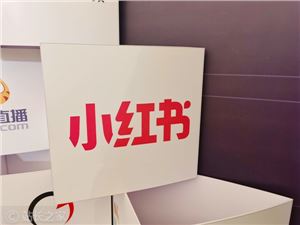Nexos.ai, a new startup founded by Lithuanian entrepreneurs and co-founders of Nord Security, Tomas Okmanas and Eimantas Sabaliauskas, has announced a €30 million (approximately $35 million) Series A funding round, just months after emerging from stealth mode and completing an $8 million funding round. The round was led by Index Ventures and Evantic Capital, with the company's valuation reaching €300 million (approximately $350 million).
Nexos.ai positions itself as a secure middleware platform for enterprise AI tools, acting as an intermediary between employees and AI systems, helping companies use AI tools while ensuring data security.
According to Okmanas, "the biggest data breaches in enterprises" are forming because employees are uploading sensitive information to large language models. He hopes Nexos.ai will become "Switzerland of large language models," acting as a neutral mediator rather than simply banning employees from using AI. By establishing a control layer between teams and AI tools, the platform aims to maintain data control without sacrificing the productivity gains that companies desire but fear to pursue.
This combination of experienced founders solving critical enterprise issues explains why the latest funding round was completed so quickly. A company spokesperson revealed that the valuation for this round was €300 million (approximately $350 million), led by Index and Evantic Capital. Previous investors Creandum and Dig Ventures also participated in this round, along with angel investors including the CEO of Datadog, Klarna, Supercell, and Wix.
Okmanas said that the new investment firm Evantic, founded by former Sequoia partner Matt Miller, was very persistent, even though Nexos.ai had not planned to raise funds at the time, which led to this deal. Okmanas and Sabaliauskas were previously known for being self-reliant, including building Nord into a $3 billion cybersecurity company (behind NordVPN). However, they now see the value of venture capital.
In addition to the support from Index, Nexos.ai now benefits from Miller's guidance and his "legendary" network — 140 operational experts who provide advice to startups in Evantic's portfolio in exchange for sharing fund profits. Okmanas stated that he himself is one of the "legends" and is drawing on others' expertise to shape the product, which is also where the new funding is directed.
Currently, Nexos's AI products include an AI workspace interface for employees and an AI gateway for developers. This gateway acts as a control layer for security, cost management, and compliance monitoring, while reducing fragmentation — something Okmanas believes is a major obstacle to AI adoption. The gateway provides a single access point to approximately 200 AI models, and the company plans to use the funding to accelerate support for private models handling sensitive data.
Okmanas said that his team currently conducts 50 to 60 demo calls per week, but expects traditional enterprises to "do a lot of work" to convince their boards on how to adopt AI. Nexos.ai can help them by simplifying deployment. However, first, the startup focuses on technology companies that already use AI daily and companies operating in regulated industries that are concerned about governance issues and sending sensitive data to AI models hosted abroad.
Okmanas and Sabaliauskas identified the AI governance gap while overseeing the Tesonet portfolio. Tesonet is the parent company they created and invested in for startups. Companies in the Tesonet portfolio are also among Nexos.ai's disclosed customers, along with the Bulgarian fintech unicorn Payhawk (which also has an office in Vilnius). According to the press release, this round of funding will support expansion in Europe and North America.
For Okmanas, the mission is to remove barriers to broader AI adoption. While boards debate whether AI can bring real value, he pointed out results within the Tesonet portfolio: an AI assistant at the web hosting provider Hostinger reduced the need for human support. Okmanas said, "That's why we don't need to hire 500 people, saving 10 million euros this year."
Despite mentioning Hostinger's numbers, Okmanas refused to reveal Nexos.ai's own revenue. Instead, he said that when the company celebrates its first anniversary, the team will grow to 100 people — mainly in Europe, where concerns about data sovereignty are beginning to open doors for Nexos.ai in public institutions, potentially creating new markets beyond its corporate focus.
From a product positioning perspective, Nexos.ai targets core pain points for enterprises in AI applications: security and compliance. As more employees use public AI services like ChatGPT to handle work-related content, the risk of sensitive data leaks has significantly increased. Many companies respond by banning external AI tools, but this sacrifices the opportunity for productivity improvements. Nexos.ai tries to solve this dilemma through a middle-layer architecture.
From a technical implementation perspective, the AI gateway provides unified access control and audit capabilities. By establishing a proxy layer between internal enterprise systems and external AI models, companies can implement data anonymization, access control, and usage auditing for security measures, while allowing employees to use various AI models. A single access point supporting 200 AI models also simplifies the technology stack and reduces integration complexity.
From a market positioning perspective, Nexos.ai initially focuses on tech companies and regulated industries. The former already uses AI and has clear needs for productivity improvements; the latter faces strict compliance requirements and special concerns about data sovereignty and governance. The emphasis on data sovereignty in the European market and concerns about sending data to American AI models have provided unique market opportunities for Nexos.ai.
The fast fundraising pace reflects two factors: the founders' successful track record and the urgency of market demand. Okmanas and Sabaliauskas built Nord Security from scratch into a $3 billion cybersecurity giant, a success that brought strong credibility to their new project. The urgency of the enterprise AI security sector has also made investors willing to act quickly.
From an $8 million seed round to a $35 million Series A round, the valuation jumped from undisclosed to $350 million, a growth rate that is rare in the current market environment. The involvement of Evantic Capital is particularly noteworthy — a new fund founded by a former Sequoia partner that provides operational support to portfolio companies through its "legendary" network, a model that may bring value to Nexos.ai beyond capital.
Okmanas mentioned the Hostinger case — saving 500 hiring spots and 10 million euros in costs through an AI assistant — demonstrating the actual value of AI in customer service scenarios. Such specific ROI data is more persuasive than abstract promises of productivity improvements, serving as a powerful evidence for Nexos.ai to demonstrate the value of AI to potential customers.
However, Okmanas refused to reveal Nexos.ai's own revenue data, only stating that the team will expand to 100 people within a year. This caution may reflect that the company is still in the early stages, and the revenue scale may not yet be sufficient to support the current valuation. For enterprise software startups, proving the sustainability of the business model is key to long-term success.
From a competitive landscape perspective, enterprise AI security and governance is an emerging but rapidly crowded field. In addition to Nexos.ai, several other startups offer similar AI proxies, data governance, or cost management solutions. Differentiation may come from technical depth, compliance capabilities, model coverage, and the degree of integration with existing enterprise systems.
The uniqueness of the European data sovereignty market could be a distinct advantage for Nexos.ai. The company mentions that public institutions are also becoming potential customers, which is not unexpected given the strict data protection regulations in the EU. If Nexos.ai can establish a foothold in government and public sectors, it could provide stable revenue sources and strong brand endorsements.
Overall, Nexos.ai's rapid fundraising and high valuation reflect the strong demand for enterprise AI security solutions in the market. The founders' successful track record, clear product positioning, and timely market entry are key factors attracting top investors. However, how to convert early market attention into sustainable revenue growth and how to maintain product relevance in the rapidly evolving AI technology environment remain challenges for the company to prove.










